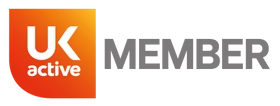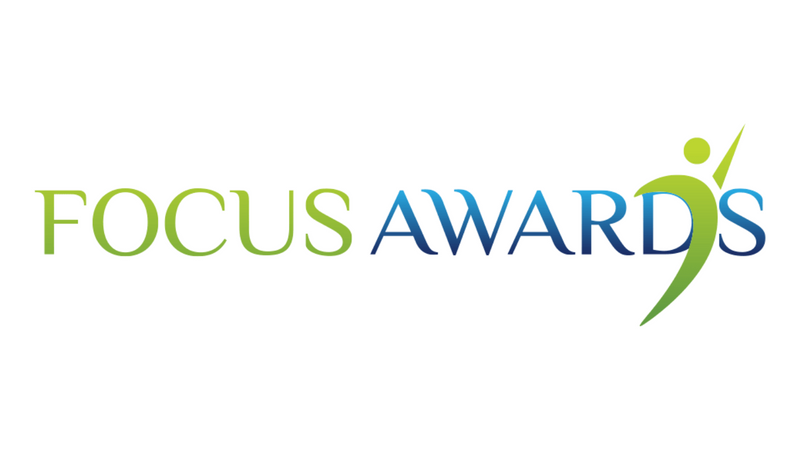Introduction
In the bustling life of UK nurses, a significant number find themselves grasping for relief from burnout and job dissatisfaction. With the pressures of long hours and the emotional weight of healthcare, a shift towards careers that promise a more equitable work-life balance has gained momentum.
Nurses often weigh the financial implications meticulously before embarking on a new professional path, understanding the necessity of securing income stability even during a transition. Moreover, nurses harbour aspirations for personal development and eagerly embrace new challenges, fuelling a trend in pursuing diverse career avenues that extend beyond conventional clinical roles.
A Shift to Personal Training
Nurses often pursue personal training as a dynamic career route that allows them to nourish their passion for health and wellness outside the clinical setting.
>> Learn more: Level 3 Personal Training Course

An overview of personal training for nurses
Personal training offers an engaging platform for nurses to apply their expertise in a one-on-one or group setting, focusing on fitness goals, preventive health strategies, and lifestyle modifications. The ability to empower clients to take charge of their health aligns seamlessly with the nurturing skills refined through nursing.
Opportunities in gyms and health centres
Nurses find welcoming opportunities in gyms, health centres, and private practices as personal trainers. These facilities value the comprehensive health background a nurse brings, particularly in developing individualised programs for clients with various health conditions.
>>LEARN MORE: Personal Training Levels Guide
Transition into personal training
The transition into personal training typically involves certification through a recognised fitness organisation. Nurses possess a unique advantage due to their previous medical training, which can shorten the certification process and facilitate a smoother transition into the role of a fitness professional.
Exploring the personal training industry
The personal training industry thrives on innovation and personal development, offering continuous learning opportunities. Nurses interested in this sector can specialise in areas such as geriatric fitness, rehabilitation, sports, or nutrition, tapping into a vast market with diverse client needs.
- Specialising in techniques catered to older adults can be a rewarding niche, as this demographic often requires tailored exercise programs.
- Working alongside clients recovering from injuries merges a nurse's clinical skills with exercise science for a holistic recovery approach.
- Immersing in the sports sector opens doors to working with athletes, utilising sports-specific training regimens that optimise performance.
Reinventing Professional Identity: becoming a nutrition advisor
Pursuing a career as a nutrition advisor represents a fundamental shift from direct patient care to a preventive and educational health role.

These professionals often work within communities teaching healthy eating habits, developing diet plans, and supporting individuals' nutritional well-being.
>>LEARN MORE: Level 3 Nutrition Course
Opportunities as a nutritionist
As a nutritionist, former nurses can explore various sectors including public health, sports nutrition, or private consultancy. The depth of their experience in patient care can prove advantageous when providing personalised nutrition advice. They are in a position to influence dietary choices which can lead to improved health outcomes.
Opportunities as a nutrition advisor
Nurses may find roles as nutrition advisors within educational settings, food services, health departments, and within the private sector. This career choice allows for direct interaction with clients and the provision of bespoke nutritional guidance that can positively transform clients' lifestyles.
Transition into nutrition
The step from nursing to nutrition requires a dedication to learning and a readiness to embrace a change of environment. Many nurses find that their communication skills, patient education techniques, and scientific knowledge of human biology position them well for this transition.
Skills assessment and alignment with new career objectives
- An understanding of science and the human body facilitates a nurse's transition to becoming a nutritionist.
- Communication skills and empathy translate effectively when guiding clients to make healthier choices.
- Knowledge of diet-related health conditions equips nurses to address nutritional deficiencies and promote better health standards.
Having honed a set of transferable skills in the healthcare setting, nurses can refashion these abilities to meet the demands of the nutrition field.
Embarking on a Public Health Journey: A New Avenue for Nurses
Nurses seeking to translate their clinical expertise into a broader impact on community health will find public health careers to be a rewarding venture. With their extensive knowledge of healthcare systems and experience in patient care, nurses are uniquely equipped to tackle public health roles efficiently.
Opportunities in Public Health
The transition from clinical settings to public health opens a multitude of doors. Nurses may explore positions such as public health nurses, health promotion specialists, and epidemiologists. Each role relies on skills honed in clinical practice to improve population health, develop policies, and manage outbreaks.
Transition into Public Health
Leveraging their background in patient communication and advocacy, nurses can shift into public health seamlessly. A Master of Public Health (MPH) degree often enhances job prospects, though many roles offer entry points with on-the-job training or through certifications in public health.
Exploring the Public Health Industry
- The public health industry offers diversity, with positions in government agencies, non-profits, and private sectors.
- A career in public health can focus on local communities or extend to global health initiatives.
- Public health professionals analyse data to understand health trends, design interventions, and evaluate outcomes.
- Nurses in the industry collaborate across sectors to develop health policies and programs.
Embarking on a New Chapter: Nurses as Medical Writers
Nurses possess a wealth of knowledge and experience that positions them uniquely for the role of medical writer. Medical writers play an indispensable role in the communication of medical information, crafting material that ranges from clinical trial reports to educational literature for the general public. Their audience may vary, but precision and clarity remain their north star.

Defining the Role of a Medical Writer
At the core, medical writers synthesise complex scientific data into accessible and informative content. They bridge the gap between healthcare professionals and various stakeholders, including patients, regulatory bodies, and pharmaceutical companies. Their craft depends on their ability to distill nuanced medical concepts into clear, persuasive narratives without sacrificing accuracy.
Opportunities Abounding for Nurses in Medical Writing
The demand for skilled medical writers escalates alongside advancements in healthcare research and ever-tightening regulatory requirements. Nurses often find these roles in pharmaceutical companies, contract research organisations, and healthcare publications. Freelance opportunities additionally afford a level of flexibility appealing to those seeking to step away from conventional clinical roles.
Charting the Path from Nursing to Medical Writing
Transitioning into medical writing requires nurses to leverage their clinical knowledge and couple it with strong writing skills. Some may choose to pursue a certification in medical writing, further demonstrating their expertise to potential employers.
Mastery of medical terminologies, understanding of drug development processes, and a keen eye for detail will mark the success of a nurse making this career shift.
Engaging in online courses, attending workshops, and joining professional associations for medical writers can expedite this transition, providing not just knowledge but invaluable networking opportunities.
A New Chapter: Nurses Flourishing in Childcare Roles
Nurses in the UK are increasingly finding their skills and experiences highly applicable within the childcare sector. The ability to provide compassionate care and support to developing minds offers a rich and rewarding career path outside the traditional clinical settings.
Opportunities as a Childcare Worker in the UK
The childcare industry in the UK presents a vibrant landscape for career development, with numerous roles ranging from daycare educators to specialised child support advisors. Nurses bring a unique set of qualifications to this sector, including a profound understanding of child development, health and well-being, and the ability to handle sensitive situations with empathy and patience.
Transition into Childcare
Moving from nursing into childcare necessitates adaptation and may require additional qualifications, such as an Early Years Educator certification or a Childcare and Education diploma. However, nurses typically find that many of their competencies are directly transferrable, especially their communication skills, their ability to assess developmental milestones and their familiarity with safeguarding protocols.
Exploring the Childcare Industry
Roles in nurseries, as childminders, or within preschool educational settings can all benefit from a nurse's background.
In these environments, nurses apply their holistic understanding of health and development to foster an enriching atmosphere that supports the overall growth of children.
With a heart for nurturing and a background in health care, nurses transitioning into childcare contribute significantly to early childhood development, shaping future generations with the care, understanding, and support children need during their formative years.
Nurses Transforming Their Careers
Nurses possess a diverse set of skills that open many doors to careers that may offer the work-life balance and career satisfaction they seek. Whether considering personal training, leveraging nutritional expertise, advancing public health, or venturing into medical writing, opportunities abound.
Every nurse holds a unique blend of experience and passion, which can be a beacon guiding them toward a fulfilling new career. The drive for personal development, coupled with a strong foundation in healthcare, paves the way for nurses to thrive in roles such as speech language pathologists, life coaches, and childcare workers.
Encountering varied demands across these professions, nurses often find success by adding their distinct touch of empathy, critical thinking, and a strong ethical compass. As they step into new roles, they also reinforce the indispensable role of health professionals in every facet of wellbeing.
Seeking these new pathways does not mean going it alone. A wealth of resources are available to support nurses in their transition. With access to robust training programs, financial planning tools, and networks of like-minded professionals, the journey is one of discovery and growth.
- For training and retraining resources, nurses can explore continuous education opportunities and certification programs.
- A solid financial plan is the backbone of a successful career transition, and financial planning tools can assist in making informed decisions.
- Joining career transition networks can offer peer support and guidance, sharing insights that only those with similar experiences can provide.
By expanding horizons, nurses are not leaving their first passion behind; they're finding new ways to channel their commitment to caring for others. They're shaping their careers to fit their lives, not the other way around. This choice leads not only to individual growth but also to the enrichment of the entire healthcare spectrum.







